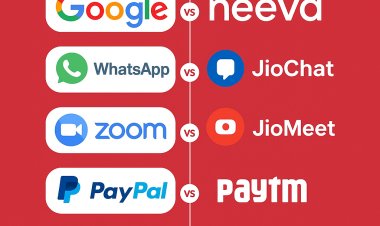Enhancing Security with Powerful Messaging, Voice, and WhatsApp API for Multi-Factor Authentication In today’s digital landscape, security is paramount.
As cyber threats continue to evolve, businesses must adopt robust solutions to protect user data and ensure safe access to their applications. One of the most effective strategies is implementing multi-factor authentication (MFA).

As cyber threats continue to evolve, businesses must adopt robust solutions to protect user data and ensure safe access to their applications. One of the most effective strategies is implementing multi-factor authentication (MFA). By leveraging powerful messaging, voice, and the WhatsApp API, organizations can significantly enhance their MFA processes, providing users with a seamless and secure experience.
The Importance of Multi-Factor Authentication
MFA adds an extra layer of security by requiring users to provide multiple forms of verification before gaining access to their accounts. This typically involves something they know (like a password), something they have (like a mobile device), and sometimes something they are (biometric data). The integration of messaging and voice technologies can streamline this process, making it not only more secure but also user-friendly.
Powerful Messaging and Voice Integration
Utilizing powerful messaging services enhances the MFA experience by delivering verification codes instantly. Users receive SMS or app-based messages with unique codes, making it quick and straightforward to complete the authentication process. Voice calls can also be employed, providing users with the option to receive codes verbally, catering to different user preferences. This versatility ensures that all users, regardless of their technical proficiency, can navigate MFA effectively.
The Role of WhatsApp API
The WhatsApp API takes communication a step further. With over 2 billion users globally, WhatsApp offers a familiar platform for users to receive MFA codes. By integrating the WhatsApp API into the authentication process, organizations can ensure that messages are not only secure but also instantly recognizable to users. This familiarity reduces friction, leading to higher engagement and fewer abandoned authentication attempts.
The WhatsApp API also allows for richer messaging capabilities. Businesses can send multimedia messages, enabling them to convey important security information visually. This can include instructions on how to proceed with the authentication process or alerts about suspicious activities, enhancing the overall user experience.
Benefits of Enhanced MFA Solutions
Increased Security: By requiring multiple verification methods, businesses can significantly reduce the risk of unauthorized access.
Improved User Experience: With messaging and voice options, users can choose their preferred method of receiving authentication codes, making the process more user-friendly.
Higher Engagement Rates: The familiarity of WhatsApp encourages users to complete the authentication process, minimizing the likelihood of abandonment.
Real-Time Communication: Instant notifications via messaging services ensure users are promptly informed about login attempts, improving security awareness.
Scalability: As businesses grow, these solutions can be easily scaled to accommodate increasing user bases without compromising security or user experience.
Conclusion
Incorporating powerful messaging, voice, and the WhatsApp API into multi-factor authentication strategies represents the ultimate approach to securing applications in today’s digital environment. By prioritizing user experience alongside security, organizations can build trust and loyalty among their users while effectively safeguarding sensitive information. As technology continues to evolve, embracing these innovations will be crucial for businesses aiming to stay ahead in the ever-changing landscape of cybersecurity.
for more information https://www.osdigital.in/whatsapp-api.html


 Prerna
Prerna 



























